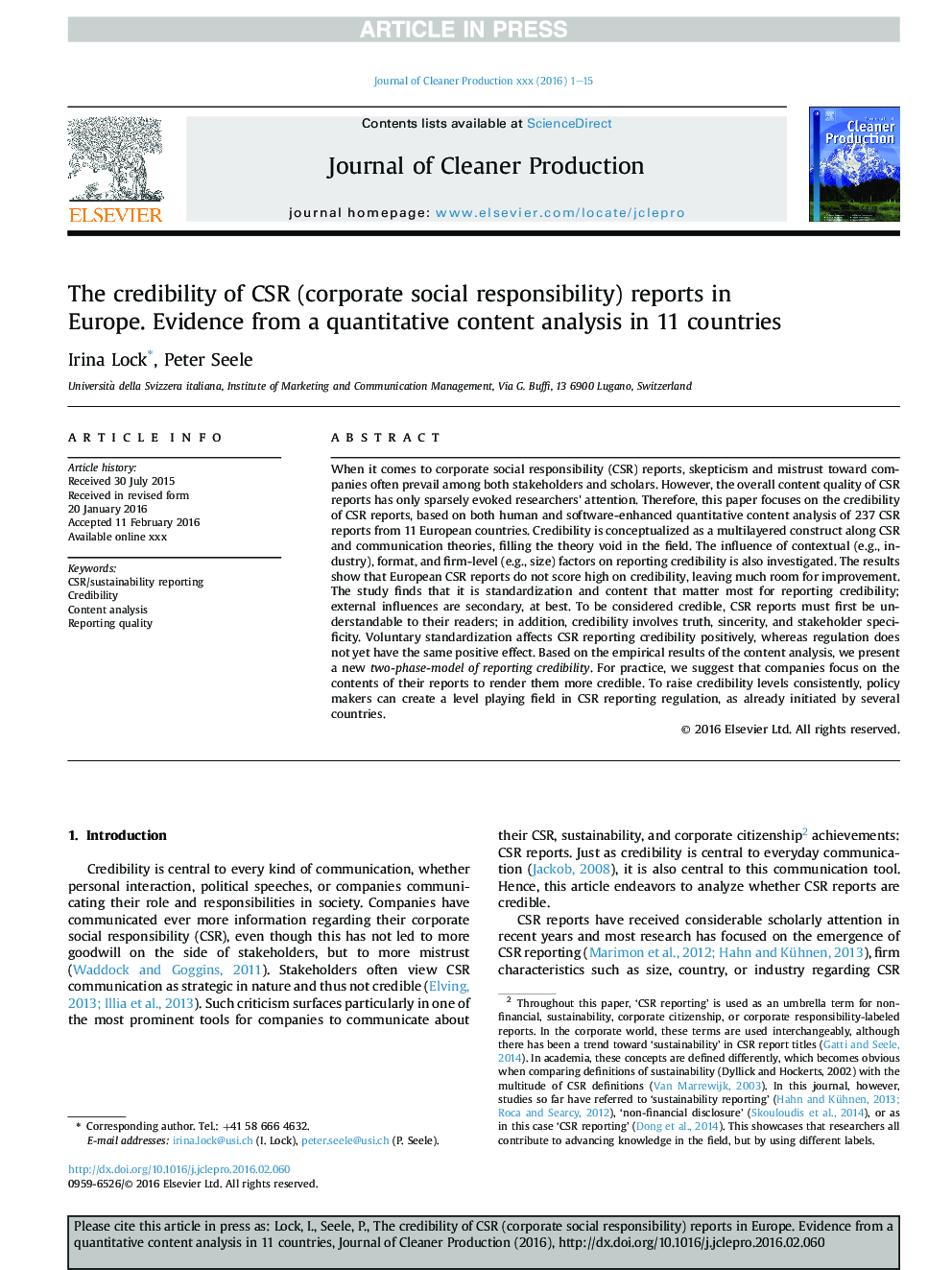| Article ID | Journal | Published Year | Pages | File Type |
|---|---|---|---|---|
| 8102400 | Journal of Cleaner Production | 2016 | 15 Pages |
Abstract
When it comes to corporate social responsibility (CSR) reports, skepticism and mistrust toward companies often prevail among both stakeholders and scholars. However, the overall content quality of CSR reports has only sparsely evoked researchers' attention. Therefore, this paper focuses on the credibility of CSR reports, based on both human and software-enhanced quantitative content analysis of 237 CSR reports from 11 European countries. Credibility is conceptualized as a multilayered construct along CSR and communication theories, filling the theory void in the field. The influence of contextual (e.g., industry), format, and firm-level (e.g., size) factors on reporting credibility is also investigated. The results show that European CSR reports do not score high on credibility, leaving much room for improvement. The study finds that it is standardization and content that matter most for reporting credibility; external influences are secondary, at best. To be considered credible, CSR reports must first be understandable to their readers; in addition, credibility involves truth, sincerity, and stakeholder specificity. Voluntary standardization affects CSR reporting credibility positively, whereas regulation does not yet have the same positive effect. Based on the empirical results of the content analysis, we present a new two-phase-model of reporting credibility. For practice, we suggest that companies focus on the contents of their reports to render them more credible. To raise credibility levels consistently, policy makers can create a level playing field in CSR reporting regulation, as already initiated by several countries.
Related Topics
Physical Sciences and Engineering
Energy
Renewable Energy, Sustainability and the Environment
Authors
Irina Lock, Peter Seele,
